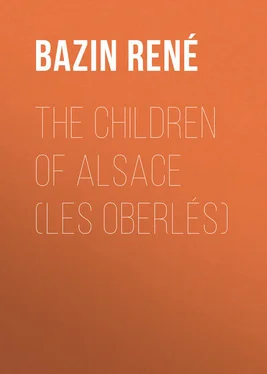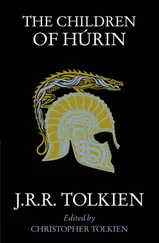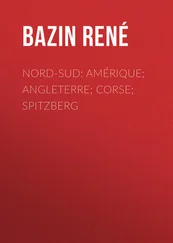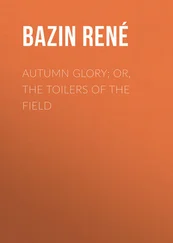René Bazin - The Children of Alsace (Les Oberlés)
Здесь есть возможность читать онлайн «René Bazin - The Children of Alsace (Les Oberlés)» — ознакомительный отрывок электронной книги совершенно бесплатно, а после прочтения отрывка купить полную версию. В некоторых случаях можно слушать аудио, скачать через торрент в формате fb2 и присутствует краткое содержание. ISBN: , Жанр: foreign_language, foreign_antique, foreign_prose, на английском языке. Описание произведения, (предисловие) а так же отзывы посетителей доступны на портале библиотеки ЛибКат.
- Название:The Children of Alsace (Les Oberlés)
- Автор:
- Жанр:
- Год:неизвестен
- ISBN:http://www.gutenberg.org/ebooks/34957
- Рейтинг книги:5 / 5. Голосов: 1
-
Избранное:Добавить в избранное
- Отзывы:
-
Ваша оценка:
- 100
- 1
- 2
- 3
- 4
- 5
The Children of Alsace (Les Oberlés): краткое содержание, описание и аннотация
Предлагаем к чтению аннотацию, описание, краткое содержание или предисловие (зависит от того, что написал сам автор книги «The Children of Alsace (Les Oberlés)»). Если вы не нашли необходимую информацию о книге — напишите в комментариях, мы постараемся отыскать её.
The Children of Alsace (Les Oberlés) — читать онлайн ознакомительный отрывок
Ниже представлен текст книги, разбитый по страницам. Система сохранения места последней прочитанной страницы, позволяет с удобством читать онлайн бесплатно книгу «The Children of Alsace (Les Oberlés)», без необходимости каждый раз заново искать на чём Вы остановились. Поставьте закладку, и сможете в любой момент перейти на страницу, на которой закончили чтение.
Интервал:
Закладка:
They recognised him a long way off because of his slim, tall figure and his habit of wearing only light clothes, which he bought in Paris, and invariably chose in shades of brown, varying from the dark brown of the walnut to the light brown of the oak. His pointed beard, very well kept, added length to a face which had but little colour and few wrinkles; his mouth smiled readily under his moustaches, and his prominent nose, with its fine outline, showed purity of race; his kind, intelligent grey eyes would quickly become haughty and defiant if one spoke of Alsace; and the wide brow, which imparted a touch of dreaminess to this face of a fighting man, seemed larger still because of two bare patches extending into the thick growth of stiff short hairs.
Now, on this particular evening M. Ulrich had returned from visiting the wood-cutting going on in the mountains of the Valley of the Bruche, and his servants were not expecting him to go out again, when after dinner he said to his servant, the old Lisa, who was waiting at table:
"My nephew, Jean, arrives to-night at Alsheim, and no doubt if I waited till to-morrow I should see him here, but I prefer to see him down there, and to-night. So I am starting. Leave the key under the door, and go to bed."
He had immediately whistled for Fidèle, taken his stick and gone down the path, which entered the wood at some fifty paces below Heidenbruch. M. Ulrich was clad, according to his custom, in a loose coat and trousers of dead-leaf colour and a velvet shooting-cap. He walked quickly, and in less than half an hour he found himself at a place where the path joined a wider alley, made for pedestrians and for the pilgrims of Sainte Odile. The place was mentioned in the guide-books, because for a hundred yards one could look down on the course of a swift stream which lower down the plain flowed through the village of Alsheim; and especially because in an opening of the ravine in the angle formed by two slopes of the mountains, one could see, in daylight, a corner of Alsace – villages, fields, meadows – and very far away a vague streak of silver, which was the Rhine, and beyond that the mountains of the Black Forest – blue as flax and rounded as the loops of a garland. In spite of the night, which limited his vision, M. Ulrich, on arriving in the alley, looked in front of him, through force of habit, but saw only a triangle of steel-coloured darkness in the upper part of which real stars shone, and lower down gleamed luminous points the same size as the stars, lightly veiled and surrounded with a halo – the lamps and candles of the village of Alsheim. The traveller thought of his nephew, whom he was presently to embrace, and asked himself: "Whom am I going to find? What has he become after three years' absence, and three years in Germany?"
It was only a momentary pause. M. Ulrich crossed the alley, and wishing to go the shortest way, passed under the branches of a forest of great beech-trees, which sloped steeply down towards a fir plantation, where he could regain the road. Some dead leaves still trembled at the ends of the lower branches, but the greater number had fallen on those of the preceding year. They had not left an inch of the soil uncovered, and as thin as silk themselves, and quite pale, they looked like a pavement of extremely smooth light-coloured flagstones: the trunks, marbled with moss, regular as columns, rose to a great height at the top, very high up, the tips leant towards each other, and their tenuous branches touched each other, outlined the arch, and let the light pass through. A few bushes broke the harmony of the lines. About a hundred yards lower down, the barrier of green trees seemed to form the solid wall of this ruined cathedral.
Suddenly M. Ulrich heard a slight noise, which another man would probably not have noticed: it was in front of him, among the green firs towards which he was advancing. It was the sound of a stone rolling down the slopes, faster and faster, striking against obstacles and rebounding. The noise grew fainter and fainter and ended with a detonation, sharply distinct, which proved that the stone had reached the pebbly bottom of the hollow and split. The forest had again become silent, when a second stone, much smaller still, to judge by the sound it called forth, also began to roll along in the shadow. At the same time the dog's hair stood up, and he came back growling to his master.
"Be quiet, Fidèle," he said. "They must not see me!"
M. Ulrich thrust himself behind the trunk of a tree, understanding that a living being was coming up across the wood, and guessing who was going to appear. Indeed, making a hole in the black curtain of pine-trees, he now saw the head, the two forelegs, and soon the whole body of a horse. A white, hurried breath escaped from its nostrils and smoked in the darkness. The animal was making immense efforts to climb the steep slope. With straining muscles its forefeet doubled up like hooks, its belly all but on the ground, it advanced by jerks, but almost noiselessly, sinking into the moss and the thick mass of vegetation heaped on the soil, and hardly displacing anything but the leaves, which slipped one over the other with a murmur as of dropping water. It carried a pale-blue horseman bending over the animal's neck and shoulders, and holding his lance almost horizontally, as if an enemy were near. The breath of the man mingled with the breath of the horse in the cold night air. They advanced, showing by their bearing the difficulty of the upward struggle. Soon the traveller distinguished the yellow cord on the rider's tunic, the black boots beneath the dark breeches, the straight sword hanging at the saddle-bow, and he recognised a horseman of the regiment of Rhenish Hussars garrisoned at Strasburg; then nearer still he was able to distinguish on the black-and-white flag of the lance a yellow eagle, indicating a non-commissioned officer; he saw under the flat cap a beardless face, ruddy and perspiring, with red-brown, fierce and restless eyes, a face buffeted by the horse's mane in motion, and frequently turning to the right, and he named under his breath Gottfried Hamm, quartermaster in the Rhenish Hussars, and son of Hamm the police-constable of Obernai. The man passed by, brushing against the tree behind which M. Ulrich was hiding; the shadow of his body and of his horse stretched across the feet of the Alsatian and on to the neighbouring moss: they left in their wake an odour of harness and of perspiration.
At the moment when he passed the tree he turned his head again towards the right. M. Ulrich looked in the same direction, which was where the greatest length of the beech-wood could be seen. Thirty yards farther on he discovered a second horseman coming up the same track, then a third, who had become no more than a grey silhouette between the columns of beech-trees and then, judging by the shadowy movements, farther on still, he divined that there were other soldiers and other horses climbing the mountain. Suddenly there was a flash in the depths of the wood, as if a glowworm were flying by. It was an order. All the men took one step to the right, and, forming in single file, silently, without uttering a word, continued their mysterious manœuvre. The shadows moved for an instant in the depths of the forest; the murmur of crushed and falling leaves became more and more indistinct, then ceased, and the night seemed once more to be empty of life.
"A formidable enemy," said M. Ulrich half aloud, "who is kept in training day and night! There was certainly an officer down there on the path. It was in his direction they were all looking. He raised his sword, bright in the moonlight, and those nearest saw it. They all turned. How little noise they made! All the same, I could have finished off two of them – if we had been at war."
Then, noticing that his dog was now quietly looking at him with nose in air and tail wagging, he added:
Читать дальшеИнтервал:
Закладка:
Похожие книги на «The Children of Alsace (Les Oberlés)»
Представляем Вашему вниманию похожие книги на «The Children of Alsace (Les Oberlés)» списком для выбора. Мы отобрали схожую по названию и смыслу литературу в надежде предоставить читателям больше вариантов отыскать новые, интересные, ещё непрочитанные произведения.
Обсуждение, отзывы о книге «The Children of Alsace (Les Oberlés)» и просто собственные мнения читателей. Оставьте ваши комментарии, напишите, что Вы думаете о произведении, его смысле или главных героях. Укажите что конкретно понравилось, а что нет, и почему Вы так считаете.












